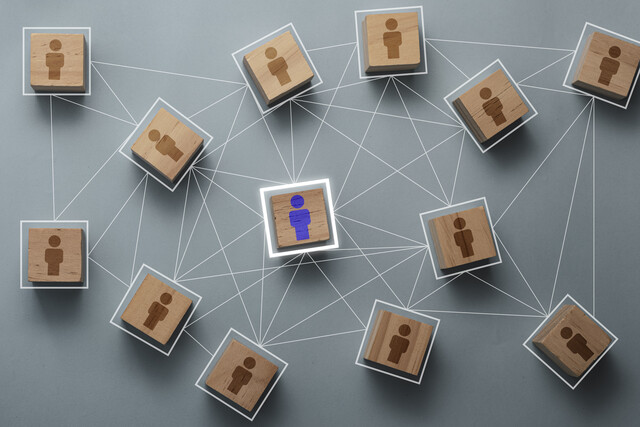Here is the big one, the one so many people go through in their lives. It is a difficult situation for those who go through bankruptcy, but the ugly end result of taking on too much credit is usually this.
For bankruptcy in the United States, there are two primary types that affect an individual: Chapter 7 and Chapter 13.
In Chapter 7 bankruptcy, the debtor will surrender all their non-exempt property to a bankruptcy trustee, who then sells all of it and distributes the money made from the sale to those who the debtor owes money too. As a result of this, the debtor is discharged from all debt. That being said, if they are guilty of inappropriate behavior, then they are not discharged from the debt, and certain debts, like spousal and child support, or student loans, also cannot be discharged.
After going through the bankruptcy, the individual will usually have some household items, their clothes and an old car, with everything else being sold. Depending on the state, the debtor will lose a certain amount of property.
In Chapter 13 bankruptcy, the debtors keep ownership of all possessions and assets, but are required by law to give a certain amount of their income, for the next three to five years, to the creditors. This is often called "garnishing wages."
| Bankruptcy And Credit Score |
An individual's credit will go down about 200 to 250 points following the declaration of bankruptcy, and the bankruptcy will make them ineligible for credit within seven years; the penalty will stay on their credit history for as much as 12 years. Naturally, this makes it a big trade-off for having your debts wiped clean, and many choose to find some sort of payment plan that will prevent them from losing everything, including their credit score.
| Bankruptcy Statistics |
If you have gone through bankruptcy, you should know that you are not alone. This is very important, because if you can know that others have gone through the same thing as you and wound up okay, then you should be able to as well. It is nice knowing there are others just like you, especially in a trying situation like bankruptcy.
In 2005 along, there were 2,000,000 bankruptcy filings in the United States, the most in the history of the nation. It has also been found that as the debt-to-income ratio goes up, so too does the number of bankruptcies. Back in 1980, the debt-to- income ratio was about 11 percent, there were only 200,000 bankruptcy filings in the United States. In 2007, the debt-to-income ratio was 14.25 percent, and bankruptcy filings hit 600,000.
As can clearly be seen, bankruptcy filings are hitting unprecedented levels, and with the downturn in the American economy in 2008, it is likely that new records will be broken, as Americans move from the 2000s into the 2010s.
However, like foreclosure, going through bankruptcy is not the end of the world. In fact, you can rebuild your credit after you suffer bankruptcy, and all it takes is some determination, willpower, goals, and these steps:
-
First, as has been stated before, you have to pay your bills. The only difference here, is that you have to pay your bills in full. You can do minimum payments, but you are attempting to rebuild your credit and that takes paying your bills in full. Only pay the minimum here if you can't afford to pay the full amount.
-
Keep the total used credit on your credit cards, if you still have them, to only 10 percent. If you do not have credit cards, it will be very difficult to get them after you have gone through something like bankruptcy. Therefore, you may have to go with a secured credit card, where the balance comes from your own bank account. Using secured bank accounts are good ways to re-establish your credit.
-
Limit how many credit applications you make following your bankruptcy. You should not go and try and get credit for at least a year after you have gone through bankruptcy. If you start trying to get credit too soon, it is going to look very bad on your credit report.
-
Get your credit report every year. This will show you the progress you are making, and it will also tell you when you can start applying for credit again, in case you want to get an unsecured credit card, or something along those lines.
-
Save your money. This is important because the savings levels of Americans has fallen to an all-time low, and it is what gets many people into the problem of bankruptcy initially. Do not let it happen to you again.
This plan will help the individual pay back their debt. Usually, it will involve reduced payments, interest rates and fees for the individual based on terms given to the creditors that determine how much everything can be reduced.
At this point, all of the individual's debt accounts are closed and they are restricted from incurring future charges. This creates a great benefit for the individual because they can pay everything off through lower interest rates and payments without having to worry too much about falling behind. Interest rates alone for credit cards can be lowered as much as five to ten percent, or eliminated altogether through deals between the credit counselor company and the credit card company. This is a big advantage because the interest on a default credit card can reach 30 percent. Reducing this debt payment and the interest means that the individual can be debt-free in three to six years, rather than 20 or more years that many go through.
The third great benefit from credit counseling is that it brings all of an individual's payments from default to current, and that helps with the individual's credit rating. Since everything is current, and the person is in credit counseling, they will begin to improve on their credit rating.
| A Brief History of Credit Counseling |
Credit counseling came about in its present form in 1951 when the United States created the National Foundation for Credit Counseling. The first local credit counseling franchises began appearing in the 1960s, offering individuals with poor credit and debt problems, education and counseling directly.
In 1993, the Association of Independent Consumer Credit Counseling Agencies was created to satisfy a need for industry-wide standards of excellence and ethical conduct. This was the first true competition to the NFCC. The AICCCA favored using telephone delivery of debt management programs, while the NFCC opposed this in favor of face-to-face counseling, which they felt was much more effective. Soon after, another major trade organization was created, called the American Association of Debt Management Organizations.
| A Good Choice? |
If someone is suffering from having trouble with debt, and are lost in a debt spiral, one of the best things that they can do for themselves is find a debt counselor who will be able to help them take their debt and turn it into something they can manage.
| Be Careful |
The sad thing about all of this is that when someone goes to credit counseling, they are doing so because they are between a rock and a hard place. The problem is that there will be people out there who want to take advantage of that, and credit counseling scams have become a serious problem.
Credit counseling scams have become a serious problem for many, but there are tips to keep you safe and away from being taken in a scam.
-
Always know where your money is going. You should make sure you are getting detailed records of what the credit counseling company is spending your money on.
-
Read any contract thoroughly before you ever think about giving your information to the credit counseling company.
-
Find out if the credit counseling company is part of one of the big three trade organizations. If they are, then you should be okay because they must operate under the quality guidelines of those organizations.
-
Research other credit counseling companies to see where your money is best put. Try and find one with a long history of taking care of their clients and their debt problems.
| Credit Is Not Cash |
It is very important that an individual understands this, because credit is by no means cash. Credit is something a person borrows. However, it is not cash. Cash is something that a person can use immediately to buy something they want, while credit is something they borrow to buy something now.
One of the biggest problems people face with living in their means is that they are not able to accept that credit has to be paid back.
It is the adage of, "I will gladly pay you tomorrow for a hamburger today." People enjoy being procrastinators, so they choose to use credit, instead of using cash, since they get the gratification of the purchase, without the worry of the cost until the bill comes -- and even then they only make payments on what they purchase.
| Limiting Purchases |
|
Living within one's means will help lower debt, because the amount on purchases, especially credit purchases, will be severely limited. Limiting purchases is a big step to credit repair, because the less a person has to buy the less they will be paying back later on. Sadly, the society people live in puts a lot of emphasis on buying things now for the instant gratification that it provides. People play into this, and they use their credit cards, or loans, to do this. For example, when someone is thinking about going out and getting a car, do they need a brand new car with all the extras that will cost $40,000? No, probably not. They can probably get by just fine by purchasing a car for $10,000, used, without the need for credit. This is what many people forget about when they are trying to deal with their credit.
|
| Planning Ahead |
It is very important that an individual plans ahead, when they are attempting to live within their means and deal with debt. Planning ahead means that they will be paying off their debts down the road, because they will be planning to do so by saving money. There are many companies out there that play into the instant gratification/delayed response belief. Furniture companies will advertise that an individual does not have to pay until 2012, but when 2012 has come around, that person has not actually saved the money for the purchase, plus the interest that has come along with it.
|
Sell What Is Not Needed |
Above, it was stated that many people buy things they do not need, because of the consumerist society they live in. Usually people will have too much stuff to use anyways, so they should start selling this. Doing so solves the problem of owning too many things, and it also helps create a sizable savings. For example, if an individual is making payments on a big screen television and on a sports car, they are probably paying hundreds, if not thousands a month in these payments. Therefore, they need to sell these items to eliminate those payments and be able to move on with their lives, without those large debt albatrosses hanging over their necks.
| Think About Purchases |
When someone is looking to make a purchase, even if it is just a cell phone or cable television, they should think about how this will affect them. Can they afford it? Will the extra cost set them behind? This plays into planning ahead, and it can help a person keep the money they make from going somewhere else that they do not want it to.
There is a very good book from the 1970s called "How I Found Freedom In An Un-Free World," and in it, the author details how he hated paying his cable bill because of how much it was, and how it hurt his finances. His simple solution: He canceled his cable.
| Go For Lower Interest Rates |
Whenever someone is getting credit, they need to do it in such a way that they can get lower interest rates. Often, interest rates can be the biggest problem for some individuals, because they can pay back their payment, but not the interest that is added on top of it.
























